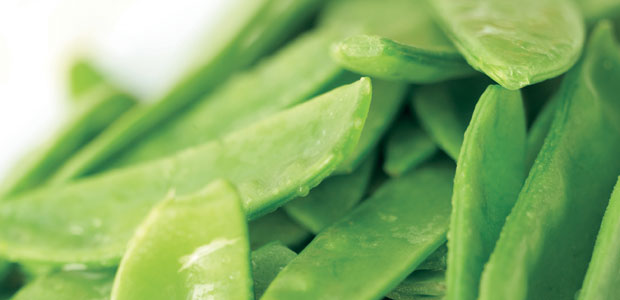Advertisement
Going Vegan
The nitty - or should we say nutty? - gritty on vegan nutrition

As a nutritionist, I see a red flag in my mind when my friends tell me they are thinking about “going vegan.” With meat, eggs, dairy, and the occasional hamburger no longer in their diets, vegans face challenges in meeting all of their nutritional needs.
While applauding their health-minded decision, I feel strongly obliged to put my well-intentioned friends on track to becoming successful, nutritionally balanced vegans.
Veganism excludes not only meat and fish but also animal products, including milk, eggs, and honey. True vegans also refrain from using animal products such as wool, leather, down, and silk. Being vegan is more than a diet–it’s a way of life.
Making the Switch
Switching to a vegetable-based diet has many health benefits. According to the Dietitians of Canada, vegans consume lower levels of saturated fat and cholesterol and consequently show lower rates of hypertension and adult-onset diabetes. The legumes, whole grains, veggies (especially those from the cabbage family), and fruits that are the basis of the diet are linked to the prevention of many types of cancer, including breast cancer.
However, we cannot remove animal- based sources of protein, calcium, fat, vitamins, and other minerals without replacing them with plant-based ones. Doing so could pose serious health risks. For example, some vegans who have low levels of the vitamin B12 (found most reliably in animal foods), may potentially increase their risk for stroke and heart disease.
Variety, the Other V Word
Balance starts with variety. Vegans need to eat different protein sources throughout the day to ensure they consume all nine essential amino acids (protein building blocks). These will combine in the body to make complete proteins like those found in animal foods.
Vegans also need to pay attention to the five nutrients found more readily in animal foods than in plant foods.
As a safety net, I recommend that all vegans take a multivitamin and mineral supplement, especially if they are not eating organic foods regularly. A multivitamin will ensure some absorption of valuable trace elements also important for general health.
The trickiest part of eating vegan is not to consume too many carbohydrates. Moderation makes sense.
Eating a varied vegan diet can increase energy levels, support a healthy immune system, protect the heart, and keep digestion and elimination systems in tiptop shape. Make the commitment to veganism and you will reap its health benefits. Just remember that balance is the key.
Five Essential Nutrients
According to nutritionist Cynthia Sass, RD, who works with the American Dietetic Association and eats vegan, the following five nutrients and their food sources should be closely monitored so vegans consume recommended daily allowances (RDAs) every day:
Iron: beans, soy milk, tofu, blackstrap molasses, pumpkin seeds, cashews, sunflower seeds, spinach, fortified cereals, dried fruits, and potatoes
RDA for women: 15 mg; for men: 10 mg
Protein: beans, peas, soy milk, soy protein powder, tofu, almonds, walnuts, sunflower seeds, rice, potatoes, kale, carrots, and oatmeal
RDA for women: 50 g; for men: 63 g
Calcium: fortified soy milk, tofu, soy tempeh, dried figs, fortified orange juice, blackstrap molasses, collard greens, sesame seeds, beans, bok choy, almonds, and sesame tahini
RDA for men and women: 1,000 mg
Vitamin B12: fortified foods, including cereals, non-dairy milks, and veggie “meats”
RDA for men and women: 2 mcg
Vitamin D: fortified soy, rice and nut milks, vegetable oils, oatmeal, and sweet potatoes
RDA for women: 400 IU; for men: 200 IU
More Advice
- Combine iron food sources with foods rich in vitamin C for better absorption (enjoy a spinach salad with orange juice).
- Take a vitamin B12 supplement to maintain good digestion, steady nerves, and produce red blood cells.
Vegans who don’t get much sun exposure should supplement with vitamin D, which is produced in the body through the action of sunlight on skin.




